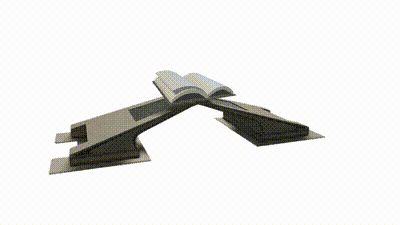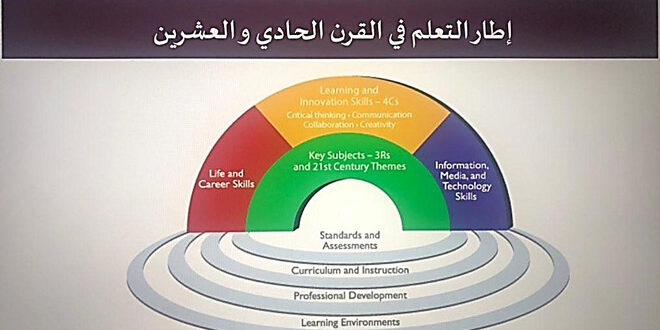In the era of rapid technological and informational revolution, it has become essential to equip future generations with 21st-century skills that enable them to keep pace with the ongoing developments in various sectors. These skills go beyond traditional academic education and encompass a set of cognitive, social, and technological abilities that prepare individuals for success in their professional and personal lives. Saudi Arabia, as part of its ambitious Vision 2030, is actively working to reform its educational system to align with these advanced skill requirements.
What Are 21st Century Skills?
The 21st-century skills are categorized into three main areas:
1. Learning and Innovation Skills:
- Critical Thinking and Problem-Solving: The ability to think logically and deeply analyze information to make informed decisions.
- Creativity and Innovation: Encouraging individuals to think outside the box and develop new ideas that foster innovation.
- Collaboration and Communication: The ability to work effectively in teams and communicate clearly with others to achieve common goals.
2. Information and Technology Skills:
- Digital Literacy: The ability to use technological and informational tools efficiently and understand different digital systems and their applications.
- Media Literacy: The skill to analyze and evaluate information from multiple sources and critically engage with media.
3. Life and Career Skills:
- Flexibility and Adaptability: The ability to quickly respond to changes and adapt to different environments.
- Social and Cross-Cultural Skills: The capacity to interact with people from diverse cultures and backgrounds and collaborate effectively in various contexts.
- Leadership and Responsibility: Taking responsibility and being able to lead teams to achieve goals.
Saudi Vision 2030 and Educational Reform
Saudi Arabia’s Vision 2030 plays a pivotal role in modernizing and developing the education system to meet the demands of the modern era. The Kingdom is undertaking several initiatives to enhance 21st-century skills among students, including:
1. Integrating Technology in Education:
In today’s digital age, incorporating technology into education is essential. Saudi Arabia is working to integrate technological tools into its educational curricula by enhancing e-learning programs and applying artificial intelligence (AI) applications, allowing students to access knowledge more effectively and flexibly.
2. Developing Curricula to Foster Creativity and Critical Thinking:
The Kingdom focuses on fostering critical and creative thinking skills among students by redesigning curricula to include activities that enhance their ability to solve problems and think innovatively. Students are encouraged to present new ideas and participate in projects that promote innovation.
3. Nurturing Life and Social Skills:
Through specialized educational programs, Saudi Arabia is developing students’ life skills, such as leadership, adaptability, collaboration, and responsibility. The Kingdom also encourages the development of communication and teamwork skills through extracurricular activities and volunteer programs.
4. Collaborating with Global Educational Institutions:
Saudi Arabia seeks to exchange expertise with leading educational institutions worldwide by forming partnerships with prestigious universities and educational centers. These collaborations contribute to improving the quality of education and enhancing the competitiveness of Saudi students on a global scale.
5. Lifelong Learning:
The Kingdom is also emphasizing lifelong learning. Through educational programs designed for adults and youth alike, Saudi Arabia encourages individuals to continuously develop their skills to meet the changing demands of the labor market.
The Role of Education in Building a Knowledge-Based Society and Sustainable Economy
Saudi Arabia’s efforts to modernize education are not standalone goals but part of a broader vision to build a knowledge-based society and a sustainable economy driven by innovation and knowledge. The Kingdom recognizes that modern education is the foundation of a strong economy that relies on qualified human resources. This aligns with Vision 2030, which aims to diversify income sources and reduce reliance on oil by fostering innovation and entrepreneurship.
Conclusion
21st-century skills are the cornerstone of preparing future generations to face upcoming challenges. Through its ambitious vision and comprehensive educational plans, Saudi Arabia is on the path to reforming its educational system to keep up with the demands of this era. Technology, innovation, and life skills remain at the core of this development, positioning the Kingdom at the forefront of nations investing in the future of their people.
 Makkah Lovers
Makkah Lovers



